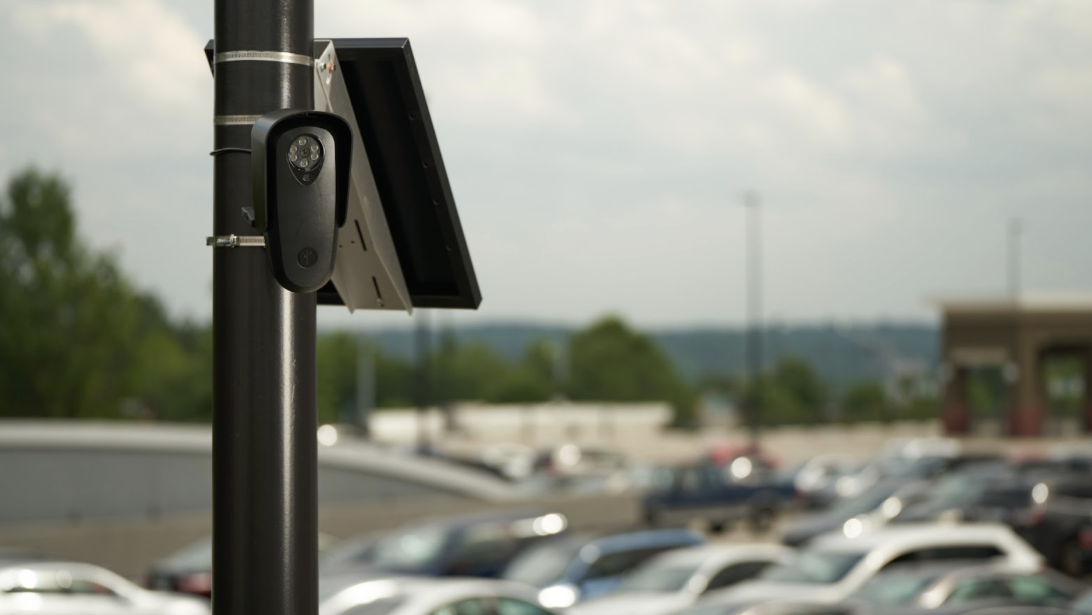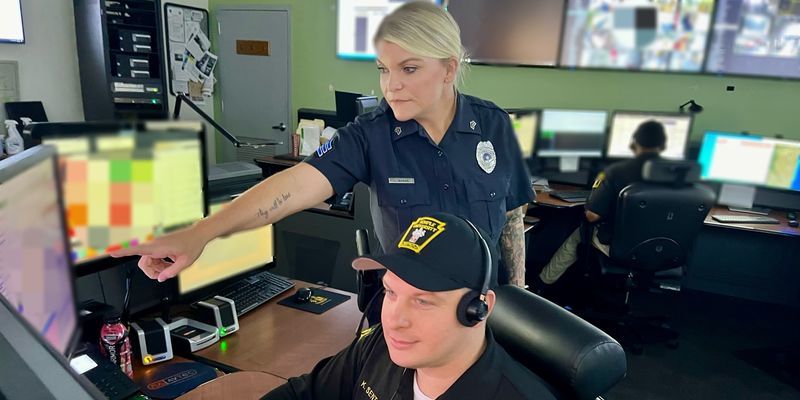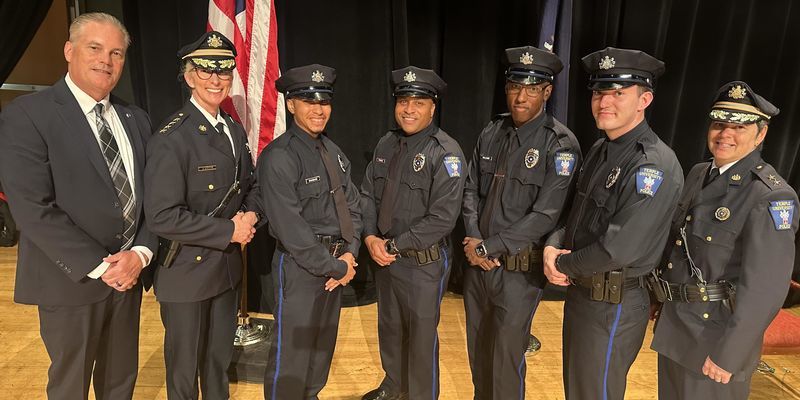New technology and enhancements from TUDPS proving to make campus safer ahead of the fall semester
With classes set to begin Monday, Aug. 26, Temple University’s Department of Public Safety has been working in overdrive to make campus safer.

New technology, never before used at a university campus in Pennsylvania, is helping to make Temple University and North Philadelphia safer as students prepare to return to campus for the start of the fall semester.
Temple University’s Department of Public Safety (TUDPS) has installed license plate reading (LPR) cameras within the university’s patrol zone in an effort to improve safety for students, faculty, staff and community members. The cameras were built by Flock Safety, a safety technology company.
“With our recently installed license plate readers, Temple University police officers are solving crime one license plate at a time,” said Chief of Police and Vice President for Public Safety Jennifer Griffin.
While Temple is the first university in Pennsylvania to use this technology from Flock Safety, Flock is also helping to secure and protect the University of North Carolina, University of Texas, University of Delaware, Kean University in New Jersey and many others.
“Our goal is to ensure that everyone feels safer on campus,” said Chief Griffin. “We are constantly thinking about ways to secure our campus and protect students, faculty and staff while protecting their privacy. With smart data security and retention policies, transparency features, and strict access protocols, Flock Safety provides the balanced approach to safety and privacy that our campus needs.”
Flock LPR cameras provide objective evidence to help solve crimes, Griffin said. The cameras capture license plates and vehicle characteristics and send real-time alerts to law enforcement when a vehicle associated with a wanted suspect or missing/endangered person passes the camera.
The cameras were installed at Temple in July and have already had a positive impact. In just two weeks since their debut, Temple’s LPRs captured a stolen vehicle traveling off campus but within the university’s patrol zone on the 1700 block of Fontain Street. The suspected driver was quickly arrested by Temple University police officers and charged with unauthorized use of a motor vehicle.
Motor vehicle thefts are called a ‘keystone crime’ by the Council on Criminal Justice because they often are used to carry out other, more serious crimes. In fact, 97% of stolen car suspects were also charged with additional crimes, according to a study by the International Association of Police Chiefs.
“With Temple being an urban campus and an open campus, crime doesn’t have jurisdictional boundaries. So this is an important step in securing the university,” said Holly Beilin of Flock.
Flock cameras are in use in over 5,000 communities across the country and have privacy protections in place. There is no facial recognition on the LPR cameras; the technology is just focused on vehicles and license plates. Plus, the data is fully encrypted when it’s stored and is deleted automatically every 30 days so there is no long storage time.
Still, thieves should take notice, warned Griffin.
“The LPR cameras identify stolen vehicles as well as wanted people. For instance, if you’re driving a car and we’re looking for you and know what kind of car you drive, all we have to do is put your tag number in the system,” Griffin said.
The LPRs are also real-time cameras and complement the university’s nearly 1,500 security cameras that are spread across campus and throughout the university’s patrol zone.
In addition to license plate reading cameras, Temple has also made major upgrades to its dispatch system for the first time in more than 20 years. This new system, called the Automated Records Management System or ARMS, improves communication between dispatchers and police officers. The upgrade also includes a records management system; a statistics management system; and information management system on Temple students.
Temple has also expanded its Investigations Unit. It recently hired two new detectives, bringing the total number of full-time detectives to eight. Seven police officers were also recently hired.
As referenced by Englert, Temple isn’t just feeling safer. Statistics show it is safer.
Aggravated assaults and auto thefts are down significantly within the university's patrol zone. Comparing data from January-July 2023 to January-July 2024, aggravated assaults decreased by 8% and auto thefts decreased by 34%.


